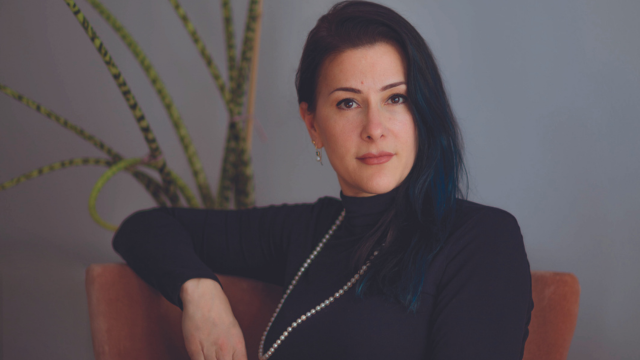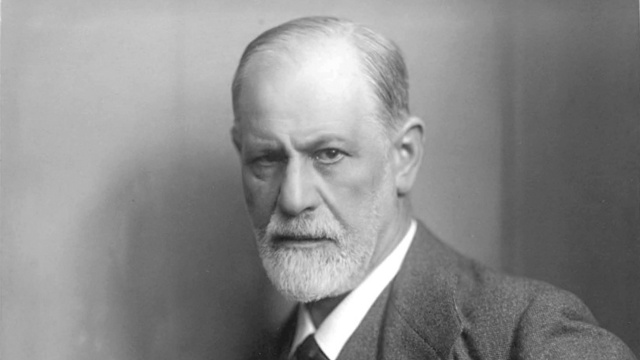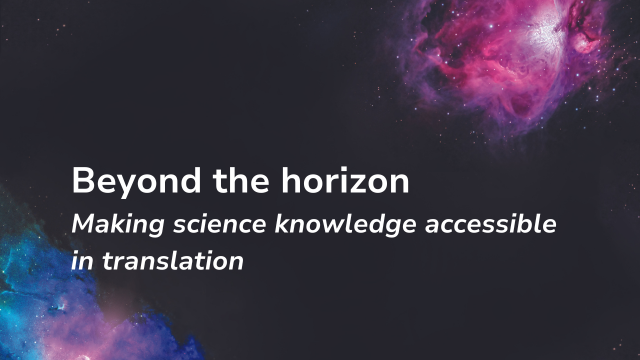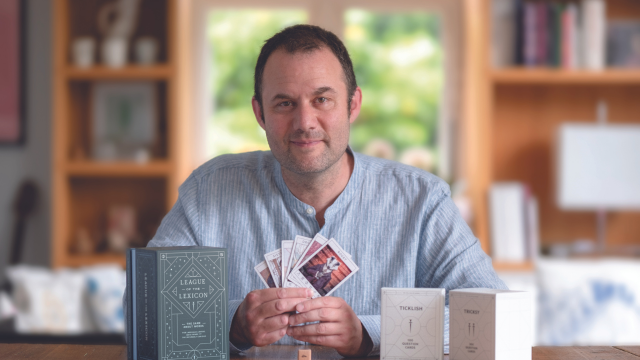-
QUALIFICATIONS
- For Linguists Worldwide
- For UK Public Services
- Preparation
- Policies & Regulation
-
MEMBERSHIP
- Join CIOL
- Professional Membership
- Affiliate Membership
- Chartered Linguist
- Already a member?
- Professional conduct
- Business & Corporate Partners
-
LANGUAGE ASSESSMENTS
- English
- All Other Languages
-
EVENTS & CPD
- Webinars & Events
- CIOL Conferences
- Networks
- CIOL Mentoring
-
NEWS & VOICES
- News & Voices
- CIOL eNews
- CIOL Awards
- The Linguist Magazine
- Jobs & Ads
-
RESOURCES
- For Translators & Interpreters
- For Universities & Students
- Standards & Norms
- CIOL & AI
- All Party Parliamentary Group
- In the UK
- UK Public Services
- Find-a-Linguist
NEWS & VOICES

What is the most efficient way to learn a language? Petar Milin and Dagmar Divjak are turning to an algorithm to find out
Learning a new language is an incredibly daunting task for adults. While newspaper headlines may give the impression that the interest in language learning is on the wane, fluency in a foreign language is something many aspire to. Over the...

How languages helped the music promoter make it to the top in a male-dominated industry
Music promoter Rachel Strassberger, who counts Black Eyed Peas among her biggest clients, has combined a career in law and marketing with a passion for electronic music. She explains how speaking five languages shapes who she is, how she builds relationships and how...

By Agata McCrindle
Why peer-to-peer mentoring – a sort of supportive partnership – can help with professional development, motivation and accountability.
Mentoring offers personalised support among professionals and boosts career growth. Early examples can be traced back to Greek mythology. In Homer’s Odyssey, King Odysseus goes to war, leaving his son,...

By Holly Langstaff, Nicola Brown, Chris Dobbs and Rebecca Smithson
A new outreach project shows teens choosing their exam options that there’s more to languages than they thought, say Holly Langstaff, Nicola Brown, Chris Dobbs and Rebecca Smithson
A new languages outreach programme aims to change how secondary school students think about...

By Adriana Nesheva
How to fashion the perfect text when translating product descriptions for clothing brands
Product descriptions are a crucial component of fashion brands. While some may consider them boring or unnecessary, they can play a significant role in the purchasing decisions of consumers. When selecting apparel, many want to know more about the...

By Jonathan Downie
As remote interpreting platforms start to offer AI services, Jonathan Downie outlines how interpreters might respond
Conference interpreting was in shock. At the start of 2023, KUDO, a leading remote interpreting platform, announced that they had launched “the World’s first fully integrated artificial intelligence speech translator”. Many...

By Spencer Hawkins
How can the translator hope to render complex theoretical concepts in another language? Spencer Hawkins looks to Freud to argue for a controversial translation approach.
The meaning of theoretical concepts such as Anlehnungstypus (Sigmund Freud’s name for the opposite of narcissism) is debated among native speakers. So how can translators...

By Nataliya Yachmeneva
Nataliya Yachmeneva outlines the challenges of cybersecurity translation and understanding the concepts behind the terminology
We all bear witness to the breakneck speed at which the concepts of IT and cybersecurity have been evolving, together with software and hardware designed to counteract growing cybercrime. No...

By Maureen Cohen
Translators of popular science are, in a sense, translating a translation...
Scientists speak a dialect of their own, with both terminology specific to their field of inquiry and a broader idiom shared by the community as a whole. Science communicators approach their subject matter with many of the same basic problems as translators: How can I...

By Anita van Adelsbergen
The inventor of the languages game League of the Lexicon discusses his passion for words and why it is all about being curious. He explains all to CIOL Council member Anita van Adelsbergen.
Joshua, you’re a game publisher, a marketing specialist, a photographer and designer, you’ve co-founded an art gallery and written a book...
The Chartered Institute of Linguists (CIOL), Incorporated by Royal Charter, Registered in England and Wales Number RC 000808 and the IoL Educational Trust (IoLET), trading as CIOL Qualifications, Company limited by Guarantee, Registered in England and Wales Number 04297497 and Registered Charity Number 1090263. CIOL is a not-for-profit organisation.
